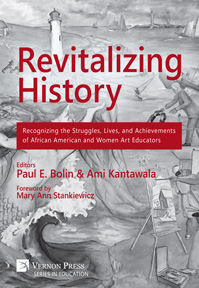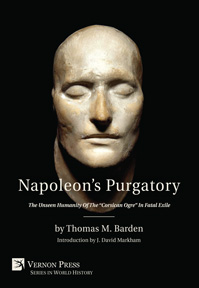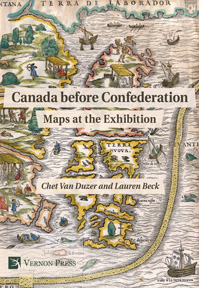Purchase this book
(click here to change currency)
"The author has created an exciting amalgam of American maritime history and British business and commercial intrigue with a compendium of appropriate British shipbuilding of the day. These unlikely components are welded into a fascinating journey through the American civil war period. Well worth reading for those of diverse interests."
Alex Urquhart
Senior Lecturer Emeritus in Naval Architecture – The Robert Gordon University, UK
"Historical accounts of the American Civil War often play down the significance of the maritime conflict. The powerful US naval blockade (1861) of the Confederate coastline was an economic disaster compared to Union losses, which were rated by some historians as relatively low. However the support, ingenuity and bravery of Confederate actions in their economic war to break through that blockade and attack the enemy, provide a unique and fascinating story, which this author tells with great effect.
The initial plan of Confederate entrepreneurs and supporters in Merseyside was to seek ships to run the blockade and do everything possible to disrupt Union intentions! The design of ships to tackle the special problems of the Atlantic conflict led to advances that would eventually transform naval architecture, decades into the future. These technical aspects are not presented in a dry structured manner but are fully integrated within the narrative. As the story evolves the reader’s knowledge structure grows; each element emerging in context, be it engineering, the education and experience of young sailors, the skill and bravery of captains, and even family matters. However, an inevitable but critical factor disrupted almost everything – international diplomacy. British neutrality to the war necessitated complex procedures for the construction of merchant vessels which also had military intention. The gathering and use of intelligence and counter- intelligence were therefore essential. Indeed the antagonism that grew between Britain and the US on these matters, almost led to all-out war.
Stimulated by his family links to these major historical events, the author has provided a richly researched and distinctive examination of how the people met their trans-Atlantic challenges. Filled with many individual tales that are real page-turners, this is a unique treatment of such an important historical event and a truly wonderful book to read."
Dr. Michael Wood OBE,
Sen. Lecturer Emeritus, School of Geosciences, University of Aberdeen
"In Mersey Built Bob Thorp resolves a problem that has long vexed authors, publishers and readers alike. He has balanced book lovers’ often conflicting demands for technical detail and a rattling good yarn. How apt that the achievement belongs to an accomplished engineer with a love of history and its tales.
Thorp’s 19th century forebears in Liverpool, England, included a shipbuilder and a merchant marine captain who did not adopt their government’s neutrality in the American Civil War. Indeed, they shared the Confederate sympathies of many of their contemporaries. During the four years of hostilities they wed politics to business, made fine profits for themselves and very nearly caused a second British – American war within a century.
Through them the Confederacy found in the port of Liverpool ready finance, shipbuilding and vessel crews prepared to defy British neutrality laws, break the Union blockade of southern states ports, sink the North’s naval ships if necessary and bring much-needed war material to the beleaguered South.
Mersey Built is a tale of robust people, human ingenuity and courage, high principle and amorality, spy and counter spy, politics and diplomacy, and of war with no quarter sought or given.
But it is also an account of how vessels designed and disguised as merchantmen were built and operated as warships.
Thorp’s meticulous research and concise writing style have produced a clear narrative of events that did much to shape Anglo-American relations.
Mersey Built is for those who find joy in books, reading and learning. It is equally comfortable as a volume for home enjoyment or as required reading in any one of many disciplines at a good university.
Keith Webster,
Journalist and Corporate Communications Consultant
‘Mersey Built’ chronicles the little-known commercial battle that raged between North and South during the American Civil War. The South relied on Europe for its military supplies, which the North tried to stop with a naval blockade of all Southern ports. The South retaliated by destroying Northern merchant ships on the high seas, using war ships, secretly procured from British shipyards and smuggled out of Britain by sympathetic British captains using British crews. The Charleston-based business empire headed by George Trenholm provided a conduit for Confederate finance with its Liverpool branch acting as bankers for the Confederacy’s procurement agents. Merseyside, with its extensive docks and numerous shipyards quickly became the epicenter of Confederate operations in Europe. Several British businessmen bought ships specifically to run supplies through the Union blockade, leaving relationships between the United States and Britain strained, close to breaking point.
The book relates the history of Trenholm’s commercial empire, its pre-war expansion into Liverpool and the pivotal role it played in supporting the Confederate war effort. The involvement of other Liverpool-based entrepreneurs and their successes and failures in blockade-running is described. Background histories of the Merseyside ship builders who constructed warships and blockade runners for the Confederacy are included as well as several mini-biographies of the Liverpool-based captains who smuggled out warships and braved the Union blockade. Details of each ship built on Merseyside for involvement in the Civil War are listed. The role of the United States consular service and its extensive, Liverpool-based, spy ring is described, as are the efforts of the United States ambassador in London to influence British government policy on neutrality.
The author, a direct descendant of a Liverpool ship builder, and a blockade-running captain, brings new insights and previously unpublished facts to light in this fascinating chapter of history.
CONTENTS
List of Illustrations
Acknowledgements
Introduction
Chapter 1: Fraser Trenholm and Company
Chapter 2: Trouble in America
Chapter 3: This is war
Chapter 4: Spies and secret agents
Chapter 5: W.C. Miller and Sons and the Oreto
Chapter 6: The Labuan affair
Chapter 7: Trouble in Nassau
Chapter 8: Lairds and the 290
Chapter 9: More trouble for Maffitt
Chapter 10: The further adventures of Captain Duguid
Chapter 11: Jones, Quiggin and the Banshee
Chapter 12: The Laird rams
Chapter 13: Prioleau and the Alexandra
Chapter 14: The Phantom and the Rose
Chapter 15: To the brink of war
Chapter 16: Henry Lafone and the Kate adventure
Chapter 17: Squabbles, skulduggery and sabotage
Chapter 18: The Confederate commerce raiders
Chapter 19: The last push
Chapter 20: A bitter end
Chapter 21: The aftermath
Appendix 1: An early letter describing the British Colony at Charleston S.C.
Appendix 2: Prospectus of the Liverpool and Charleston Steamship Company Ltd.
Appendix 3: Summary of vessels built on Merseyside employed in support of the Southern Confederacy.
Notes on the chapters
Bibliography
Index
Robert (Bob) Thorp is a graduate of Reading University and has had a long and successful career in the international oil and gas industry. His interest in Merseyside’s role in the American Civil War stems from ancestral links to Liverpool ship builders and master mariners. He is the great-great-great grandson of William Cowley Miller whose company built the C.S.S. "Florida", the seized gunboat "Alexandra", and a number of purpose-built blockade runners. He is also the great-great grandson of Miller’s son-in-law, Captain James Alexander Duguid, who was the delivery commander of the C.S.S. "Florida" and captained several blockade runners, not least of which, the "Lucy", was one of the most successful runners of the war. Bob has become internationally recognized as an authority on the Mersey built ships employed by the Confederacy and has been invited to present papers on the subject at The American Civil War Museum in Richmond, Virginia (2003) and at the prestigious McMullen Naval History Symposium at the U.S. Naval Academy, Annapolis, Maryland (2015). His book is the culmination of more than thirty years of research and contains many facts and insights not previously published.
Subjects
History
Series
Series in World History
Related services
Find in a library near you Download print-friendly flyer Download sample chapter Download HQ cover Find in Bookshop.orgSee also
Bibliographic Information
Book Title
Mersey Built: The Role of Merseyside in the American Civil War
ISBN
978-1-62273-280-7
Edition
1st
Number of pages
448
Physical size
236mmx160mm

![Mersey Built: The Role of Merseyside in the American Civil War [Hardback, Premium Color]](/file/4112/40c9dc5e4f062ec8e94a48e811b24ff5/1498210123.jpg)






